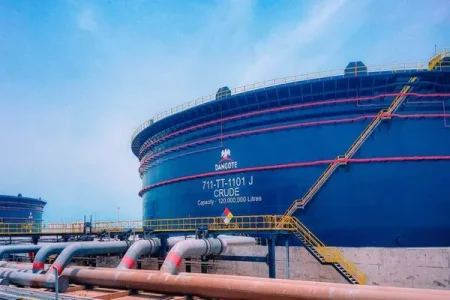
Nigeria's crude oil production saw a 50 thousand barrel increase in May, according to a Reuters survey. Despite OPEC's production cuts, Nigeria and Iraq boosted output, raising concerns about adherence to quotas.
According to a recent Reuters survey tracking crude oil production in May, Nigeria experienced a notable increase of 50 thousand barrels, marking a significant development in the country's oil sector. This rise in production comes amidst efforts by the Organization of the Petroleum Exporting Countries (OPEC) to manage global oil supply and stabilize prices.
The surge in Nigeria's crude oil output is accompanied by a similar increase from Iraq, another major player in the oil market. Despite OPEC's commitment to production cuts and measures to balance supply, both Nigeria and Iraq saw their production levels rise, raising questions about adherence to agreed-upon quotas.
The Reuters survey also revealed that OPEC, as a whole, boosted its output to 26.63 million barrels per day (bpd) in May, representing an increase of 145,000 bpd compared to April. However, this increase surpassed the implied target set by OPEC, with Iraq accounting for a significant portion of the surplus production.
For Nigeria, the increase in crude oil production comes at a critical juncture, as the country aims to bolster its oil sector and enhance revenue generation. President Bola Tinubu has set ambitious targets to increase production to 4 million barrels per day, underscoring the importance of meeting production quotas and addressing challenges within the industry.
Factors such as insecurity in the Niger Delta region, incidents of oil theft, and insufficient investment in exploration have posed challenges to Nigeria's oil production goals. Despite these obstacles, the recent increase in production signals a potential step forward for Nigeria's oil sector, albeit amidst ongoing concerns about sustainability and adherence to production targets.



![[FULL LIST] Tinubu Appoints IBB's Son, Others to Lead Key Agencies](/data/attachments/219/219051-c45e0723af5235b4e99b88eb1fa579fd.jpg?hash=su4VHIBpS9)
